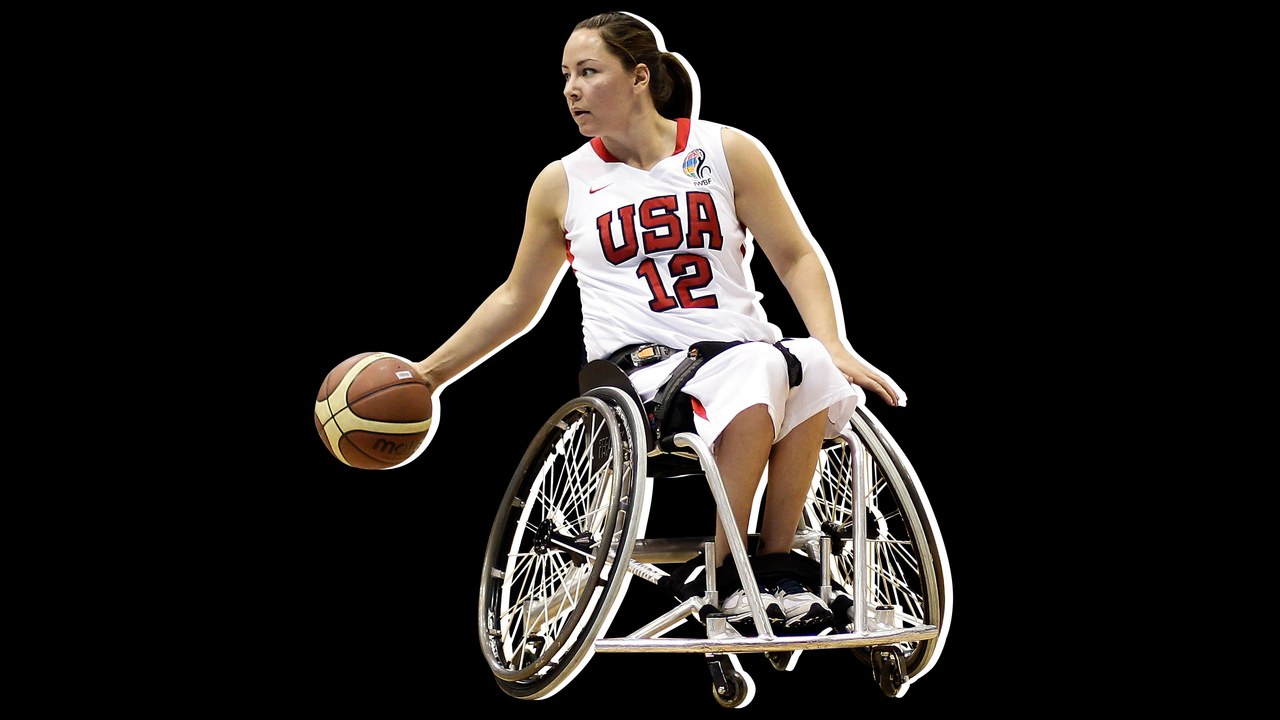Paralympian Alana Nichols Is Facing Her Biggest Challenge Yet: Motherhood as a Disabled Woman

Few could accomplish all that Alana Nichols has: At the age of 36, she’s won three gold medals, traveled the world, had the honor of meeting three presidents, and even become the first female American to win gold in both the summer and winter games, adding the title “history-maker” to her impressive resume. And she did it all from a wheelchair.
Nichols grew up in a small New Mexico town playing sports. By the time she was in high school, she was intent on pursuing athletics professionally, hoping to attend college on a softball scholarship. But during her senior year, Nichols had a snowboarding accident, falling on a rock. She was paralyzed on impact.
Nichols’ plan for her future was snatched away in a second. Just 17, she was left lying in a hospital bed with nothing but time to think. What would she do with her life now? How would she readjust and move forward? “If there was ever a physical feat in front of me that I was presented with, I knew that if I took the right steps, built the right muscle, developed the right skill set, I would be able to accomplish that,” she says. “So, after I became disabled, it was just a matter of time before I became introduced to wheelchair basketball [and adaptive sports].”
As a woman with a disability—even one who’s won gold for her athletic ability—Nichols is used to stigma. “I had to shift my mindset from society’s attitude towards people with disabilities that we’re less than,” she says. But not even her gold medals have inoculated her against the stigmas attached to her next challenge: motherhood as a disabled woman.
A mother in a wheelchair can still take her child for a walk, to playdates, to the park and catch them at the bottom of a slide—but many people seem to believe that because of the limitations those with physical disabilities have, they might be unfit moms. “I travel the world in a wheelchair and ski at 70 miles per hour: How am I not going to be a parent?” she says. If anything, it’s the parenting community that has limitations: Something as simple as the way cribs are designed is restrictive to women who can’t stand to pick their baby up from above.
After she was paralyzed, Nichols spent years familiarizing herself with and learning how to move within her body. And as a professional athlete, she trained just as hard—if not harder—than her able-bodied counterparts, learning to overcome every unexpected challenge her body threw at her. “Parenting is about overcoming each challenge as it’s presented, and we’re kind of masters at that as adaptive athletes. You can’t imagine how you’re going to do it: You just have to go and do it,” she says. “That brings me a lot of solace as a pregnant woman knowing that there’s no way to know how I’ll figure out how to parent, but I will. Instead of deciding what I can and can’t do, how about just being open-minded to the possibilities.”
Gianluca Russo is a New York-based freelance writer published in GQ, Teen Vogue, NYLON and more. Follow him @g_russo1.
